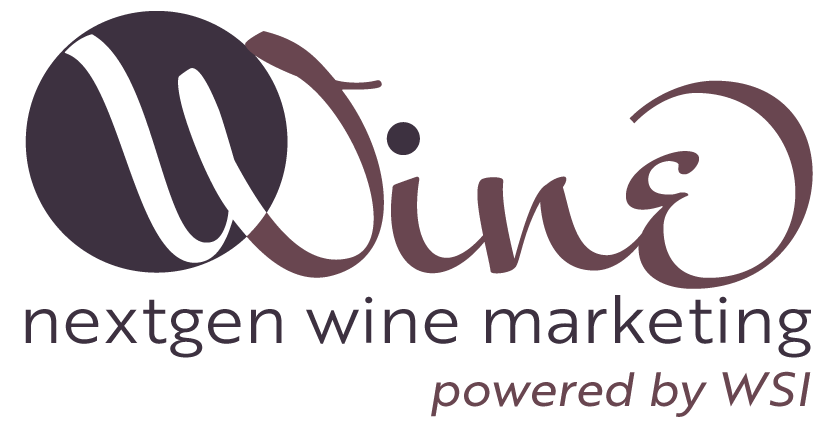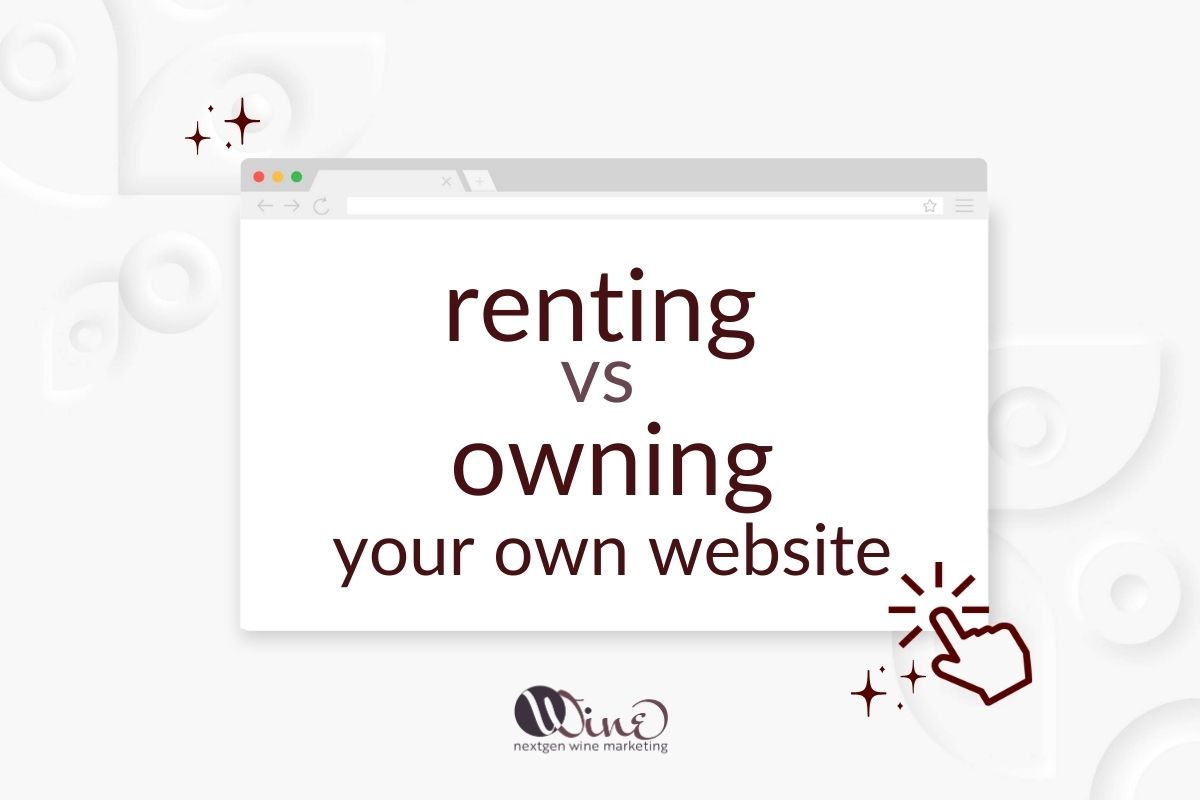In the ever-evolving digital landscape, the decision between renting and owning your winery website can significantly impact your brand’s online presence and operational flexibility. Understanding the nuances of each option is crucial for strategic digital asset management. Let’s dive into the differences, explore examples of platforms that support each model, and weigh the benefits and drawbacks. And we love a good analogy so expect some real estate references along the way…
The Foundation: Renting vs. Owning
Renting a website is akin to leasing an apartment. You pay a monthly fee to use a platform’s infrastructure, design templates, and hosting services. Platforms like Squarespace, Wix, and Shopify exemplify this model, offering ease of use and quick setup at the cost of ongoing fees and limited control.
Owning your winery website, on the other hand, means you have full control over your digital property. This involves purchasing a domain, choosing a hosting service, and potentially hiring professionals for design and development. WordPress stands out as a beacon for website ownership, providing a flexible and scalable platform that fully hands the reins over to the site owner. Our Winery Website Layouts are built on WordPress, allowing you the option to own your site.
The Blueprint: Benefits & Drawbacks
Renting Benefits:
- Ease of Use: Platforms are user-friendly, making website setup accessible to beginners.
- All-in-One Package: Hosting, security, and maintenance are typically included, simplifying the management process.
Renting Drawbacks:
- Ongoing Costs: Monthly fees can add up, potentially surpassing the one-time costs of owning a site. Advanced features like shops and booking systems often require hefty monthly subscription fees.
- Limited Customization: While customization options exist, they’re often confined within the platform’s parameters, restricting unique branding and functionality needs.
Owning Benefits:
- Full Control: From the site’s look to its functionality, everything can be customized to fit your brand’s unique needs.
- Cost-Effective in the Long Run: Initial costs aside, owning your website eliminates monthly platform fees, offering a more financially sound option over time.
Owning Drawbacks:
- Higher Initial Investment: The upfront costs for design, development, and hosting can be substantial.
- Ongoing Maintenance: Unlike renting, you’re responsible for your site’s security, updates, and technical issues, which can be daunting without the right expertise.
Building Materials: Platform Examples
For Renters:
- Squarespace offers elegantly designed templates and an all-inclusive platform for those prioritizing design and simplicity.
- Wix provides a drag-and-drop interface with extensive customization options within a rented framework.
- Shopify excels in e-commerce, delivering a comprehensive package for online stores with little hassle.
For Owners:
- WordPress allows for endless customization through themes and plugins, catering to a wide range of websites, from blogs to e-commerce platforms. WordPress also integrates with many winery ecommerce solutions, making it our choice for our winery website layouts.
- Joomla and Drupal offer more complex content management systems with a steep learning curve, suited for those requiring detailed, custom solutions.
The Mortgage: Costs and Investments
Renting a website might seem cost-effective initially, but the ongoing expenses can quickly accumulate, making it less economical for long-term strategies. In contrast, owning a website requires a higher upfront investment but results in lower operational costs, proving to be a more financially viable option in the long run, especially for established businesses aiming for growth and scalability. It’s important to note that simple websites on a rental model can be a good solution for businesses seeking long-term, low-cost, easy website management. However, once advanced features are required like shop, booking systems, etc., the rental model becomes expensive.
The Neighborhood: SEO and Performance
Owned websites typically offer superior SEO tools and optimizations, allowing for better search engine visibility and performance metrics. Rented solutions may provide basic SEO features, but the lack of control can limit advanced optimization efforts, potentially hindering your site’s ability to compete in organic search results. Our winery website layouts built on WordPress allow you to take full advantage of SEO best practices so you can rank high on search engines.
Final Thoughts: The Right Choice for Your Brand
The decision between renting and owning your winery website hinges on your brand’s current needs, future goals, and technical expertise. For those seeking quick deployment and minimal hassle, renting offers a straightforward path. However, for businesses aiming for long-term growth, brand uniqueness, and full control, owning your website is the unequivocal route.
In the realm of digital real estate, choosing the right foundation for your website is paramount. Whether you opt to rent or own, ensure your decision aligns with your marketing strategy, budget constraints, and operational capabilities, setting your brand on the path to digital success.

